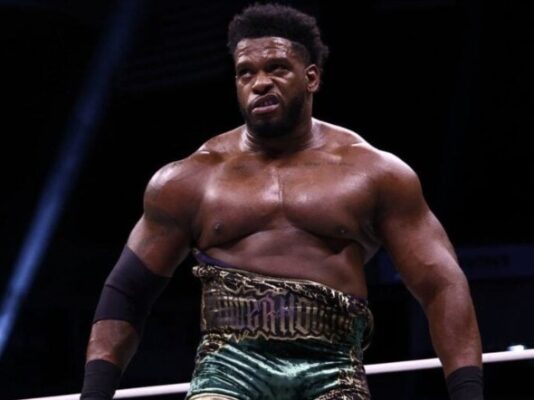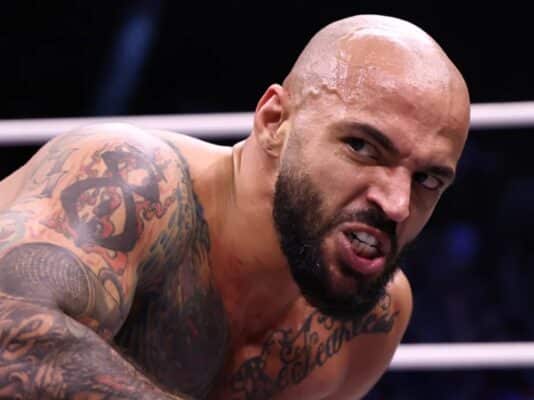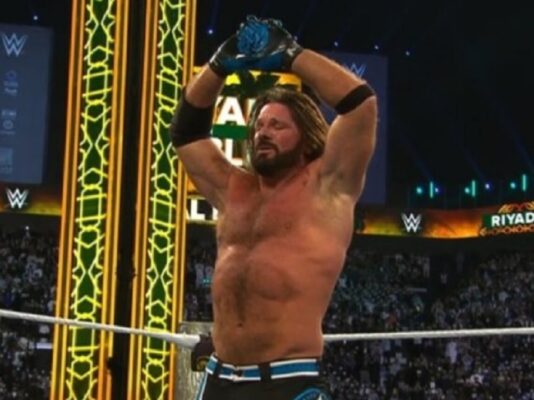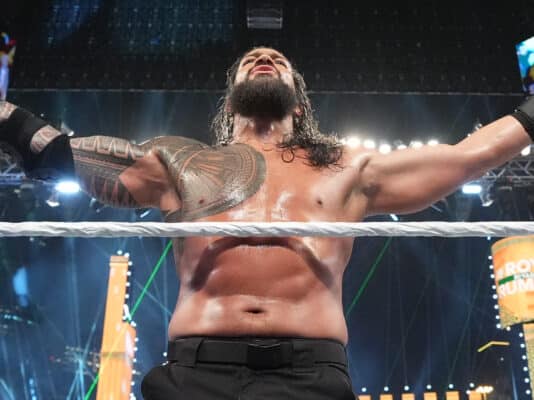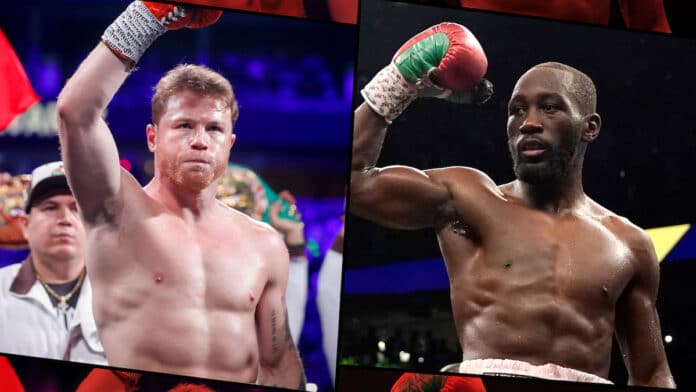
There was a time when boxing was nearly destroyed, the victim of political red tape that led to promoters protecting their golden geese rather than the top fighters signed to compete against either other. An entire generation, mostly during the Mayweather era, had to endure glorified exhibitions instead of legendary bouts that defined the sport in the past.
But, money talks.
As the boxing game saw outside investors pick up the contracts of the stars that were left, with streaming platforms like DAZN running cards that most American promotional groups couldn’t realistically afford, staples of the genre faded into the history books. HBO folded its boxing division in 2018 after 45 years because the economics of the sport made it unfeasible to bring top names to the network. Five years later, Showtime, the other network known for broadcasting premium cards in the United States, left the boxing business after a 37-year run.
But, money talks.
This weekend, for the first time in several years, the two top fighters in the sport will compete in America when Saul “Canelo” Alvarez and Terence Crawford square off at Allegiant Stadium in Las Vegas, Nevada for a myriad of Super Middleweight titles. While it’s a tradition for the Mexican superstar to fight on Cinco De Mayo weekend, he dominated William Scull in an absolute snooze fest when the opponent avoided actually fighting a few months ago, and Mexican Independence Day, this isn’t a standalone event as it was for prior Alvarez bouts in September. The UFC will present a card to commemorate Mexican Independence Day this weekend, as well as the AAA event that took place last night.
How this is possible is that money talks.
In many ways, this is one hand washes the other, as the fight was made possible through the well-documented agreement between the Saudi General Sports Authority and the TKO corporation. As we’ve already seen, the Saudi government is going to spend a rumored $100 million to buy Wrestlemania for the country in 2027. With Dana White’s Zuffa Boxing project under the TKO banner, it made sense to work with the Saudis in their boxing ventures rather than try to compete against them, specifically because their interest already overlap anyway between the extensive WWE deal and the contract to bring the UFC to the region as well.
When the Saudis wanted to import American sports to use as a propaganda campaign in a superficial attempt to modernize the country, they bought into golf, WWE, boxing, and a few other sports. Up until this point, some true super fights, including Tyson Fury’s crossover bout with former UFC heavyweight champion, Francis Ngannou, and a pair of contests against Oleksandr Usyk, took place in Riyadh. The previously mentioned Canelo/Scull fight was also held there.
The problem was that these bouts, often the biggest bouts that the sport could offer at the time, were being seen in the middle of the afternoon on the east coast, which minimized any hype that boxing had in America. However, the reasoning behind the negotiations for the Canelo/Crawford fight only had to do with cash, not the ability to bring the sport back to some level of notoriety in the United States.
When the old guard of promoters, names like Bob Arum and Al Haymon, allowed for an entire generation of lapsed fans to become disenfranchised with boxing when the previously mentioned major fights weren’t signed for years, and in some cases, such as the Floyd Mayweather/Manny Pacquiao bout, signed five years too late, there was an opportunity for someone else to make the money left on the table.
As a traditionalist of the sport, it makes me shake my head when Jake Paul used every carny trick in the book and every sideshow novelty act to fool casual sports fans into thinking that he actual has a boxing career, but the bottom line is, Paul made big money as a boxer. When the Youtube star fought the almost 60-year-old Mike Tyson with over 72,000 fans in attendance at AT&T Stadium in Arlington, Texas last November, make no mistake about it, sports promoters, including Dana White took notice.
Ironically, it was reported that Canelo Alvarez was in negotiation to fight Jake Paul earlier this year, but his four-fight deal with the Saudi government worth $400 million prevented those discussions from being anything serious that could get a fight in the ring.
As much as the consolidation of commodities in most industries could be a negative because of the potential of a monopoly, the boxing game was so fractured because of political nonsense that a centralized organization like Zuffa boxing working alongside the Saudi sports authority might be the only way to bring major boxing back to the United States. It’s a disappointing situation, but the Saudis have enough oil money to pay exponentially more than any American organization since profit is not the goal so in some ways, it’s a scenario where Zuffa can either work with the Saudis to get a piece of the pie or get the crumbs that are left over after the Saudi government signs the top boxers. At the same time, while a partnership will give the Saudis a slice of the revenue from the Canelo/Crawford fight held in Las Vegas, the money is secondary, as it’s not the objective in the first place. Instead, they are willing to work with Zuffa Boxing to keep their working agreement with TKO solid so that they can continue to get the WWE and UFC events in the country.
As far the actual match-up, I’d expect a brilliant and competitive boxing contest. This two really are the top two fights in the game today, and their clash should be an outstanding example of how entertaining a high level prize fight can be when the fighters are given a chance to compete against either other. The current betting odds on most sports books have Alvarez, the top star in the sport, a slight favorite against the undefeated Crawford. That’s to be expected, as Crawford usually fights at 160 LBS for most of his bouts, but will move up to 168 LBS to fight Canelo so the Mexican star will have the size and probably the strength advantage during the opening bell of the fight. Crawford is arguably the best pound-for-pound boxer today, and the narrative of the fight will probably be based on if Crawford can use his technical skills to score more points than his opponent.
Make no mistake about it, Canelo Alvarez is a tremendous puncher, but his press forward style, true to his Mexican heritage, could leave him open to take punches. In fact, Canelo’s willingness to take a punch to be able to land a punch is one of the many reasons that prior opponents have wilted under the pressure over the course of 12 rounds. If Crawford can handle the pressure and counter punch is probably the determining factor for the result of the bout.
If I had to pick a winner, I’d guess that Crawford will win a close decision on the score cards, as I’d expect him to get ahead on point early in the fight before Alvarez tries to push the pace in the later rounds. Regardless of the result, I’d hope for a rematch, as the promotional formula could finally be right for enough money to be on the table for rematches to get signed in an effort to get the most from each potential match-up, which was common in the past. More than anything, it will be interesting to see what the next event is for the Saudi/Zuffa agreement and if it can actually rejuvenate the sport in the future.
What do you think? Share your thoughts, opinions, feedback, and anything else that was raised on Twitter @PWMania and Facebook.com/PWMania.
Until next week
-Jim LaMotta
Email [email protected] | You can follow me on Instagram, Facebook, & Threads @jimlamotta89








